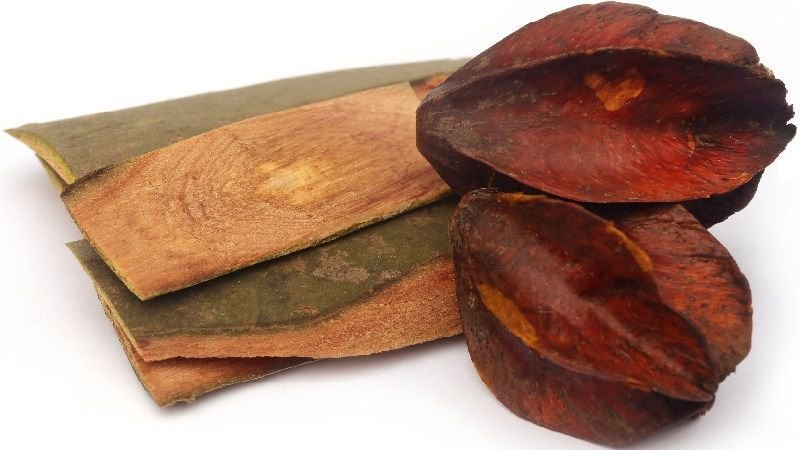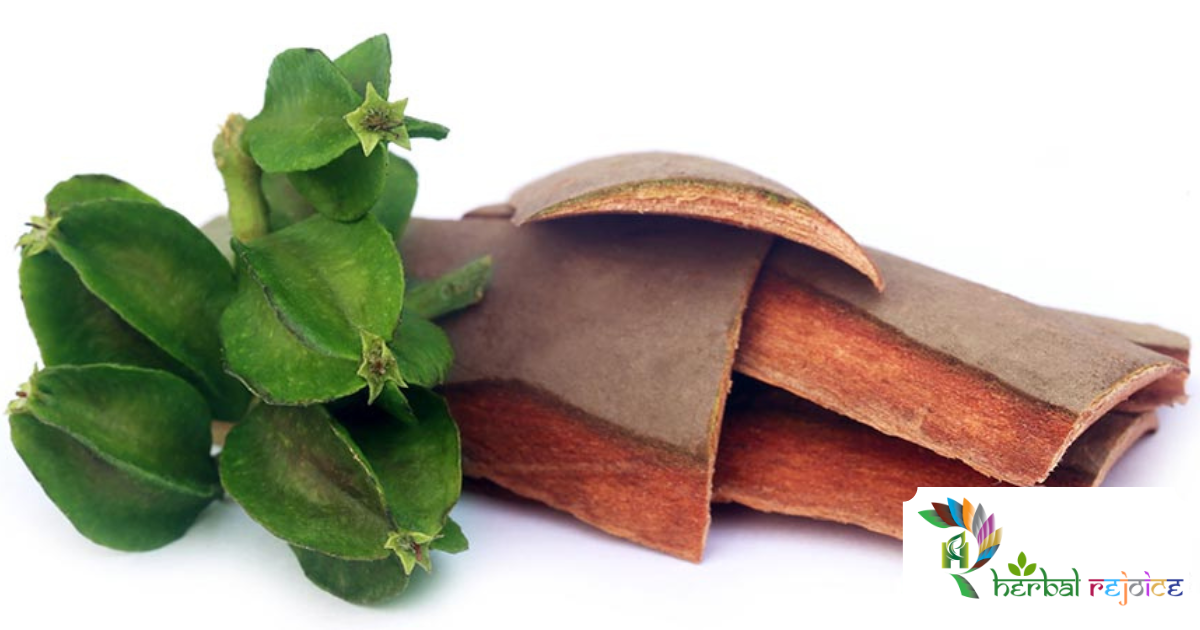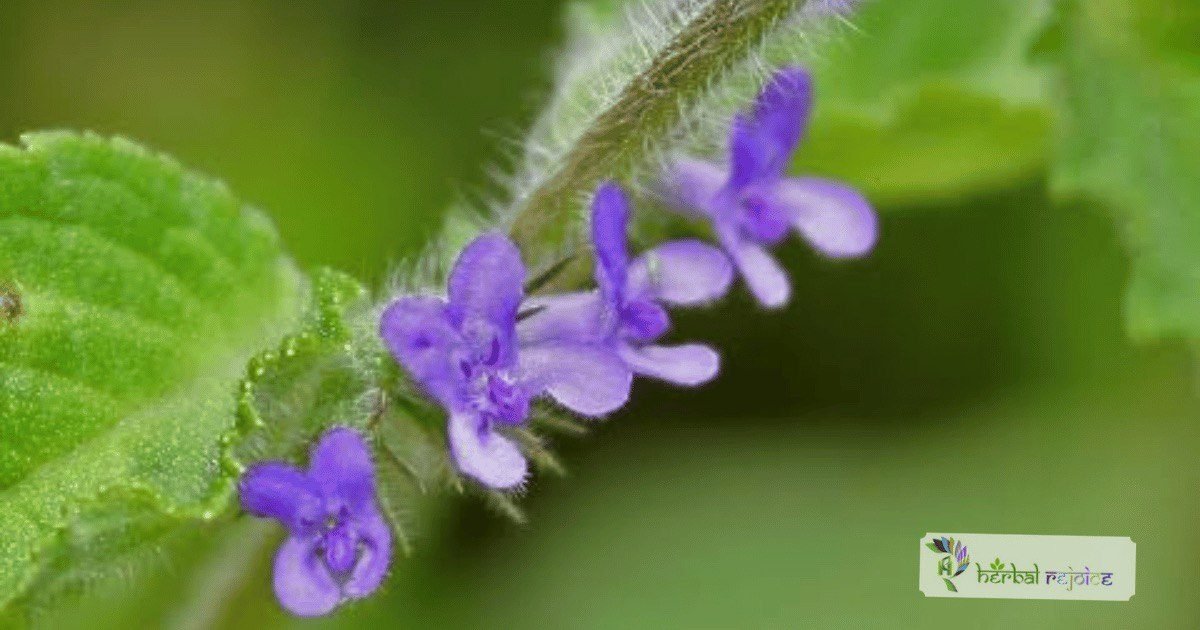Welcome to Herbal Rejoice, a blog for Healthy Living! Today, we bring you the remarkable benefits of Arjuna, an ancient herbal remedy with immense potential for your heart health, lower serum cholesterol levels reduce anginal chest pain episodes, blood pressure and overall well-being. Join us as we explore the wonders of this time-honoured botanical treasure.
Arjuna: An Introduction
Arjuna, also known as Arjun bark, is derived from the dried stem bark of the Terminalia Arjuna Rob plant, belonging to the family Combretaceae. Its reputation as a heart tonic dates back thousands of years in the Ayurvedic tradition.
The Arjuna tree, thriving across the Indian peninsula, holds immense reverence for its medicinal attributes and cultural significance. It is said that the two sons of the Tree Spirit King were transformed into Arjuna trees, bestowing an enchanted heritage upon this magnificent plant.
Arjuna -“The Botanical Marvel”
A beautiful deciduous tree, Arjuna stands tall at a height of up to one hundred feet, thriving in wet and marshy regions of India and Sri Lanka. The therapeutic part of Arjuna lies within its silver-white inner bark. This bark holds essential chemical components, including amino acids, phenols, nitrates, and tannins. Arjuna contains ellagic acid, which has shown potential in protecting DNA strands from mutations, and arjunin, a unique tannin with possible anticancer properties.
Arjuna’s Influence on the Cardiovascular System
Scientific research has corroborated Arjuna’s traditional use as a heart tonic. Studies have demonstrated its efficacy in addressing various aspects of the cardiovascular system.
Animal studies revealed Arjuna’s ability to lower serum cholesterol levels, enhance the HDL(good cholesterol): cholesterol ratio, and reduce anginal chest pain episodes and blood pressure in individuals with coronary artery disease.
Arjuna significantly reduced anginal episodes and improved heart muscle function for patients with stable heart disease.
However, it is crucial to approach the use of Arjuna cautiously, especially if you have heart disease. It is advisable to seek the guidance of a healthcare professional to avoid potential interactions with pharmaceutical drugs and to ensure proper supervision.
Arjuna’s Versatility(Beyond the Heart)
Arjuna’s benefits extend beyond heart health. Studies have shown its potential in inhibiting the growth of certain cancer cell lines and its antibiotic activity against disease-causing germs, including those responsible for gonorrhoea.
Traditionally, Arjuna has been used to regulate blood sugar, treat skin sores, and aid in bone fracture healing, areas that warrant further scientific investigation.
Practical Applications of Arjuna in Ayurveda
In Ayurvedic medicine, Arjuna’s astringent properties find applications in conditions that require toxin clearance and wound healing. Besides its heart-related uses, Arjuna is recommended for digestive disorders, acute gallbladder and liver diseases, diarrhoea, and dysentery.
It serves as a topical remedy for skin conditions, such as wounds and ulcers.
Additionally, Arjuna is believed to help people with a tendency to bruise easily, although more research is needed to confirm this effect on blood vessels or clotting.
Incorporating Arjuna into Your Lifestyle

While Arjuna may not yet be readily available in the West, Ayurvedic heart tonics featuring Arjuna as a primary ingredient are becoming more accessible.
The standard dose for heart disease is typically 500 milligrams three times a day, traditionally mixed with warm milk and sugar.
Arjuna can be prepared as a tea for digestive disorders, with one teaspoon per cup of hot water to be consumed every six hours until symptoms improve.
As a topical remedy, a decoction of Arjuna powdered bark can be applied several times a day to wounds and ulcers.
Harmony with Ayurveda
Arjuna’s taste profile is predominantly astringent, with a slightly pungent undertone. Its cooling and anti-inflammatory properties make it beneficial for balancing Pitta(based on fire and water) and Kapha(based on earth and water), though prolonged usage may increase Vata(air and space/ether).
Precautions and Conclusion
While Arjuna does not appear to have serious side effects, it is essential to consult your healthcare provider before adding it to your daily regimen, especially if you have heart disease. It should not replace any heart medications, and professional monitoring is crucial.
Arjuna, the age-old heart tonic with a legacy of healing, awaits your embrace. With its proven benefits and versatility, Arjuna can be your trusted ally in promoting heart health and overall vitality.
Arjuna may interact with blood thinners, so it should not be taken with anticoagulants such as heparin, warfarin etc….
It is generally advisable to avoid taking Arjuna, if you are breast feeding.
Embrace the wisdom of Ayurveda and discover the treasure that lies within the humble Arjuna tree!
Join us in this journey of holistic well-being and stay tuned for more enlightening insights at Herbal Rejoice, your ultimate guide to Healthy Living!
Frequently Asked Questions (FAQ) About Arjuna
What is Arjuna?
Arjuna, also known as Arjun bark or Arjun Biological Source, is derived from the dried stem bark of the Terminalia Arjuna Rob plant, belonging to the Combretaceae family. It contains not less than 0.02 per cent of arjungenin on a dried basis.
Where is Arjuna commonly found?
Arjuna trees are common in the Indian peninsula and are often found growing by the side of streams, especially in the Chotta Nagpur region.
What are the macroscopic characteristics of Arjuna bark?
The outer side of Arjuna bark has a greyish-brown colour, while the inner side appears reddish-brown. The bark is flat-shaped and exists in various sizes, typically measuring about 15 x 10 x 1 cm. Arjuna bark is odorless and has an astringent taste.
What are the extra features of Arjuna bark?
The commercial drug of Arjuna does not report the presence of cork as it is collected from old trees, and the cork gets removed due to exfoliation. The transversely cut surface of Arjuna bark appears dark brown with characteristic greyish shining patches.
What are the microscopic characteristics of Arjuna stem bark?
The transverse section of Arjuna stem bark reveals an outermost layer of cork consisting of 9-10 layers of tangentially elongated cells. The secondary phloem is wide and consists of phloem parenchyma, phloem fibres, sieve tubes, and companion cells. Phloem rays, uniseriate (occasionally biseriate), traverse the phloem. The bark also contains rosette calcium oxalate crystals and starch grains distributed in the cortex.
What are the chemical constituents of Arjuna?
Arjuna contains about 15 per cent of hydrolysable tannins. Additionally, it contains triterpenoid saponins, arjunolic acid, arjunic acid, arjungenin, B-sitosterol, ellagic acid, arjunine, arjunetine, arjunetin, arjunolone, arjunone, and various salts along with colouring matter and sugar.
What are the uses of Arjuna bark?
Arjuna bark is primarily used as a cardiotonic, reducing anginal frequency. It also serves as a styptic, febrifuge, and antidysentery. Its properties include diuretic and tonic effects. Arjuna bark is widely used in tanneries and as a timber.
How can Arjuna be distinguished from adulterants?
The dried bark of Terminalia tomentosa is used as an adulterant for Arjuna bark. However, Arjuna can be distinguished by conducting a fluorescence test. The ethereal extract of Arjuna exhibits pinkish fluorescence, while T. tomentosa shows pale blue fluorescence.
What does Ayurveda say about Arjuna’s practical use?
In Ayurvedic medicine, Arjuna’s astringent properties are applied to conditions that require toxin clearance and wound healing. It is also prescribed for digestive disorders, including gallbladder and liver diseases, diarrhoea, and dysentery. Arjuna can be used as a topical herb for skin conditions, ulcers, and wounds.
How is Arjuna used for heart disease treatment?
For heart disease, the standard dosage of Arjuna is 500 milligrams three times daily. It is often mixed with warm milk and sugar. However, it is essential to use Arjuna under the close supervision of a physician, especially if you have coronary artery disease, to avoid interactions with other medications.
Can Arjuna have potential anticancer properties?
Studies have indicated that Arjuna may inhibit the growth of certain cancer cell lines and possess antibiotic activity against disease-causing germs, including those responsible for gonorrhoea. However, further scientific investigation is required to confirm these effects.
What is Arjuna’s taste profile in Ayurveda?
According to Ayurveda, Arjuna has a predominant astringent taste with a slightly pungent secondary component. It exerts a cooling and anti-inflammatory influence on the physiology and is pacifying to both Pitta and Kapha, although prolonged usage may increase Vata.
Are there any precautions to consider while using Arjuna?
Serious side effects have not been reported with Arjuna. However, if you are considering Arjuna for heart disease, it is essential to consult your heart doctor and not stop any heart medication before starting Arjuna. Close monitoring by a healthcare provider is necessary.
How does Arjuna impact cardiovascular health?
Scientific research has demonstrated that Arjuna can substantially lower serum cholesterol levels, improve the HDL: cholesterol ratio, and reduce the frequency of anginal chest pain episodes. It has shown positive effects on heart muscle function and blood pressure in individuals with coronary artery disease.
Does Arjuna have a role in treating congestive heart failure?
Studies have shown that people with congestive heart failure who took Arjuna experienced improvements in several measures of cardiac function, enhanced overall functioning, and improved quality of life.
Can Arjuna be used as a topical remedy for skin conditions?
Yes, Arjuna has practical applications as a topical herb for treating skin conditions such as wounds and ulcers. It may also be beneficial for acne treatment when applied as a paste to the affected area.
Which chemical compounds in Arjuna contribute to its effects on the circulatory system?
While Arjuna’s chemical components responsible for its effects on the circulatory system have not been fully identified, studies have indicated that it may be attributed to its tannins, arjunolic acid, arjunic acid, arjungenin, and other flavonoids.
Can Arjuna help regulate blood sugar levels?
Traditionally, Arjuna has been used to regulate blood sugar levels, but this aspect requires further scientific investigation for confirmation.
Is Arjuna used as a cardiotonic in Ayurveda?
Yes, Arjuna’s traditional use in Ayurveda includes its application as a heart tonic, supporting its therapeutic role in cardiac conditions.





